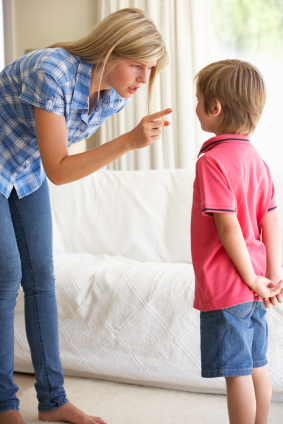
Forum: We now have a forum. You can post anonymously if you choose to. Please feel free to read posts, ask questions, make comments, or start new threads. Click here to go to the LLS forum.
Comments: If you find anything on this website helpful, or even if you have some constructive criticism to offer, please do let me know - click here and title your enqiry 'Feedback'.
Facebook: Please 'like' our facebook page by clicking the following link. Through this page you can also see updates relating to this website and make comments. Official Facebook Live Life Satisfied page
Twitter: Follow @LLSPhil Follow us on Twitter and receive updates relating to this website.
How does guilt develop?
 A child’s sense of well-being is inextricably tied to whether or not a parent is pleased with her or him. A child is typically very aware of whether or not her behaviours are causing her parent to be angry or annoyed with her. If a parent is annoyed with her, this typically creates a lowering of self-esteem. This facilitates the child learning to behave in ways that please the parent. If the child behaves in a way that displeases the parent, the child is likely to perceive this displeasure, and anxiety is typically created.
A child’s sense of well-being is inextricably tied to whether or not a parent is pleased with her or him. A child is typically very aware of whether or not her behaviours are causing her parent to be angry or annoyed with her. If a parent is annoyed with her, this typically creates a lowering of self-esteem. This facilitates the child learning to behave in ways that please the parent. If the child behaves in a way that displeases the parent, the child is likely to perceive this displeasure, and anxiety is typically created.
In this manner the child learns to behave in ways that the parent approves of, and to avoid behaviours (to some extent) that the parent disapproves of. Importantly, this enables the child to learn what kinds of behaviours are likely to annoy other people later in life and the child is therefore able to learn to avoid behaviours that will not serve her well in later life.
However, Sullivan points out that some parents often become annoyed with the child when she participates in behaviours that are not particularly harmful to anyone. The parent may simply have sets of values that have been passed down to her, that she now expects her child to adhere to. Or the parent may have a low tolerance for stress and often become annoyed with her child simply because she is finding things too stressful. Thus the parent may become annoyed with the child even when the child is doing things that are not particularly harmful to others. If the parent persistantly acts in this way, the child may become very anxious about her behaviours, since she becomes highly fearful that her parent will become annoyed or angry with her. The child then regularly experiences what is termed ‘signal anxiety’: this is anxiety that ‘signals’ that a behaviour may create a situation which is stressful. In this case signal anxiety occurs often because the infant is afraid that her behaviour may cause her parent to be angry or annoyed with her.
Sullivan believes that if significant others are unhappy or annoyed with us, this undermines our sense of safety and security and that these things are fundamental to our sense of well-being. For a child, a continuous experience of ‘signal anxiety’ is very disturbing. As she grows older, the child may well continue to feel a sense of anxiety surrounding behaviours that she fears may result in others being unhappy with her and she also may continue to experience ‘signal anxiety’ surrounding behaviours that in her developmental past, caused significant others to be unhappy with her. This feeling is what Sullivan believes people are referring to when they use the term ‘guilt’.
Do all children who are heavily disciplines develop extremely 'guilty' personalties?
However, the extent to which a person will develop a 'guilty' and anxious personality type also depends on other factors, probably both genetic and environmental. Some people are probably genetically more predisposed to develop excessive guilt under the aforementioned circumstances. Some children respond to high levels of discipline by becoming more rebellius. The latter issue relates to how much a child identifies with a dominant parent or alternatively becomes more aggressive towards a dominant parent.

